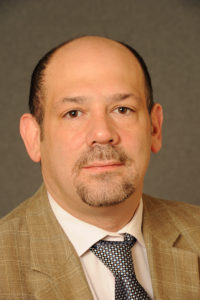German School Hails Opposition to Holocaust Remembrance Day

In Germany, Muslim students of Arab and Turkish origins refused to participate in International Holocaust Remembrance Day events—and the school applauded the students’ decision.
Benjamin Weinthal, a Jerusalem Post correspondent and fellow at the Washington D.C.-based think tank, Foundation for Defense of Democracies, covered the widely underreported story (“German Muslim Students Protest Holocaust Remembrance, Attack Israel,” Jan. 27, 2017).
Muslim students at The Weiterbildungskolleg Emscher-Lippe high school in Gelsenkirchen, Germany refused to participate in Holocaust commemoration events held at the school. Part of the event included students holding signs saying “I Remember” or “We Remember.” Instead, some Muslim students reportedly defaced the school’s blackboard, writing “F**ck Israel, Free Palestine.”
The school’s director, Günter Jahn, approved of the student’s decision, telling German newspaper Der Westen: “It is important that there is criticism. That is the basis for a discussion.” Yet, as CAMERA and others have noted, antisemitism often masks itself as anti-Zionism; unprincipled and frequently discriminatory opposition to the world’s sole Jewish state.
Antisemitism in Germany is on the rise, as Weinthal noted. Earlier in January 2017—shortly before the 75th anniversary of the Wannsee Conference in which Nazi leaders decided on the “final solution” for the so-called “Jewish problem”—German courts reaffirmed a legal decision that excused the torching of a synagogue in the city of Wuppertal by three Muslim men. The court claimed that the arson was merely an attempt to “draw attention to the blazing conflict between Israel and the Palestinians.”
Antisemitic attacks in Germany doubled from 2015 to 2016, according to a World Jewish Congress report cited by Weinthal. The actual number of attacks may in fact be higher due to the “lack of standards to identify contemporary antisemitism in the Federal Republic.”
That lack of standards is readily apparent if certain German schools and courts are an indicator.
Nor is Germany alone in Europe for blaming Jews for anti-Jewish violence. In France, for example, 60 percent of French citizens believe that Jews are at least partially responsible for rising antisemitism (“Poll: Majority in France Believe Jews Responsible for Antisemitism,” CAMERA, Feb. 12, 2016).
As CAMERA has noted, many Western news media outlets routinely underreport the burgeoning antisemitism in Europe. A 2015 study by Tel Aviv University found that anti-Jewish violence went up forty percent in 2014 (“Violent antisemitic attacks up 40 percent—Where’s the Coverage?” April 21, 2015). That report went received scant mention in the press.
By contrast, The Jerusalem Post’s Weinthal frequently writes on antisemitism in Europe. His most recent report can be found here.
More from SNAPSHOTS
CNN’s Amanpour Condemns “power grab” By Israel’s Prime Minister and Others
April 1, 2020
We’ve said it often, but it’s worth repeating: Anyone interested in reasonably unbiased information about Israel (at least) should avoid the broadcasts of CNN’s Chief International Correspondent and Anchor, Christiane Amanpour. In characterizing responses to [...]
Seattle Media Oblivious To Imam’s Hateful Indoctrination Condemning Jews
January 7, 2020
The Masjid Ar-Rahmah mosque teaching – that Allah transformed Jews into apes and pigs for disobeying him – delivered by Imam (prayer leader) Mohamad Joban – was posted online by mosque personnel. This December 2019 [...]
AP Distorts: Bethlehem ‘Almost Completely Surrounded’
December 10, 2019
Over two years after improving inaccurate language falsely citing Israel's security "barrier surrounding the biblical city" of Bethlehem, the Associated Press once again misrepresents. AP's Joseph Krauss and Mohammad Daraghmeh wrote yesterday ("Palestinians in Bethlehem [...]
Reuters Errs on Administrative Detention For ‘Anti-Israel Activity’
November 5, 2019
The Ofer Prison, near Ramallah (Photo by Tamar Sternthal) A Reuters article today egregiously misrepresents administrative detention, erroneously asserting that it is mainly applied to "Palestinians suspected of anti-Israeli activities," when in fact the Israeli [...]


